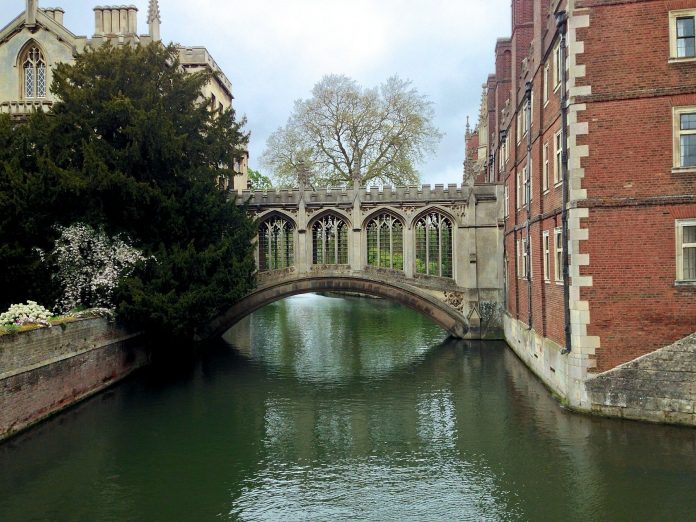How does higher education fit into the scheme of things? Melanie Butler takes a look
University language centres have long been one of the top two performing accredited sectors based on their British Council inspection reports, with 50% featuring in our current top 100.
However, during Covid, six universities dropped off the British Council accreditation list, a reduction of 15%, the highest rate for any sector except year-round private language schools. Unlike those, however, not one of these universities has closed, they have simply chosen to leave the scheme.
Among the university centres which have opted out of accreditation are four which have appeared high in the EL Gazette rankings: Liverpool, which ranked second in our university charts, UCL London, Northumbria and UAL.
The list highlights not only the famous names that have gone – two Russell Group universities – but also the strength of the university language centre sector across a wide range of university types.
The British tend to rank their universities according to their age. And, as with houses and furniture, the older something is the better.
History lessons
In England, Wales and Northern Ireland, only two universities – Oxford and Cambridge – were allowed to exist before the 19th century and only students belonging to the Church of England were allowed to enrol.
The Scots, by contrast, have four ancient universities, or five if we count Dundee, which was originally the medical school of the ancient university of St Andrews.
In the 19th century, the demand for more universities which admitted students from other churches and classes led to the founding of the University
of London in 1832, with King’s College London as a founder college. Wales, like London, chose a federal university structure and opened the principality’s first college,now Aberystwyth University, in 1872.
“Britain has seen successive waves of universities all with different histories and purposes”
During this period there was a rush among England’s great towns to create universities out of their old institutions of learning, which had previously catered to local students. Sheffield, Leicester, Manchester (and its neighbour Salford) are all what the English call ‘redbrick’ universities, named after the Victorian buildings they were housed in.
In the 60s, a new generation of universities appeared, like Brunel, that focused on emerging and exciting subjects like technology and sociology. They’re called ‘the plate-glass universities’ after, inevitably, the style of their buildings.
In 1992 the latest wave of universities began, as the Government began to award university status to the polytechnics which, like Sheffield Hallam and Brighton, had always been popular for their more vocational degrees, covering areas like architecture, accountancy and law.
More recently, university status has been awarded to former colleges like Edge Hill and Chichester, which have long been famed for their teacher training and are often described as ‘teaching universities’ to show they focus on the educational outcomes of their students rather than just research.
Britain has seen successive waves of universities all with different histories and purposes. You will see, if you check out our top university performers box (right), every type is represented in our university language centre rankings.
But will they still all be there next year?
Associations
Probably not, is the answer. Some universities had EFL-specific accreditation even before the 2004 launch of English UK, the association formed by a merger between two associations. One grew out of the language school industry, the other represented state sector colleges. The dream was for the UK ELT industry to form a united front against growing international competition.
But all thought of cross-sector solidarity went out the window when Covid hit. Press coverage has focused entirely on the plight of language schools. In perhaps the most egregious example, a recent article in the Times Higher Education trade paper pleaded with the readership to help protect the 415 language schools. It failed to point out, as we do on page 12, that of those 415 language centres, 88 were not language schools and 36 were university centres.
Some academics have long been concerned that the inspection criteria are designed for private language schools and don’t fit the university environment, where the most pressing need for international undergraduates is to master reading and writing academic English. Guidance requiring new lexis be written on the board in IPA is not only a low priority for these students, it is also contra to the research from those same universities which shows that to improve students’ comprehension, it is suprasegmentals you need to focus on.
None of these things alone are responsible for the Covid-driven exit of university language centres. That probably had more to do with the need to cut unnecessary costs. Because, for universities, accreditation is an optional extra, not a necessity. Unless the cross- sectoral accreditation scheme pays more attention to all the sectors, more universities are likely to opt out.
Top accredited university language centres
Out of 36 accredited university language centres, 12 score within four points of each other. However, some universities do not admit under 18s and so are inspected on 14 rather than 15 areas of strength, putting their score slightly higher.
13/14 Manchester
12/15 Edge Hill, Sheffield
11/14 Brighton, Leicester
11/15 King’s College London, Salford
10/14 Chichester, Dundee, Sheffield Hallam
10/15 Aberystwyth, Brunel, Leeds, Manchester Metropolitan, Teeside





